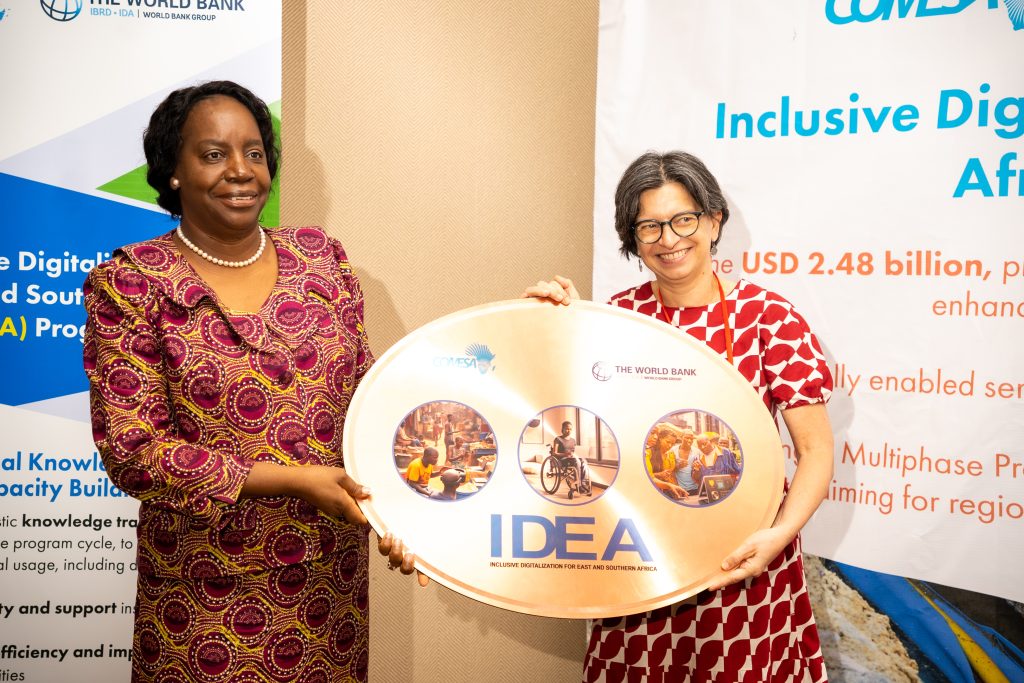
COMESA has launched the World Bank-funded Inclusive Digitalization for East and Southern Africa (IDEA) Programme which aims to empower 180 million people with internet access and provide digitally enabled services to 100 million people over the next eight years.
Permanent Secretary in the Ministry of Technology and Science of Zambia, Dr. Brilliant Habeenzu, launched the programme alongside, World Bank Practice Manager for Digital Transformation in Eastern and Southern Africa Ms Isabel Neto and COMESA Secretary General Chileshe Mpundu Kapwepwe in Lusaka on 7th April 2025.
The programme will benefit various groups, including women, refugees, host communities, private sector firms, and public sector entities. It employs a Multiphase Programmatic Approach to pool financing across multiple recipients to promote universal digital access, productive use and digital market integration. The first phase includes a $10 million grant for the COMESA Secretariat and $780 million in financing for operations in Angola, the Democratic Republic of the Congo (DRC), and Malawi.
Through COMESA, the IDEA programme will foster an enabling environment for internet access and usage, which will drive inclusive economic growth and job creation in the region. COMESA will lead the regional coordination and facilitate the knowledge exchange of experiences and lessons across participating countries.
The programme places emphasis on increasing private sector investment and will help enhance the regional policy and regulatory environment, provide project preparation support, ensure gender dimensions, and climate change considerations to offer a holistic approach to digital access interventions.
Currently in Eastern and Southern Africa, only 64% of the population is covered by high-speed internet and less than half (only 24%) are using the internet as of 2023. It will be critical for countries in the region to ramp up the pace of connectivity and uptake of digital technology to increase inclusion and boost jobs and economic opportunities.
“IDEA is a bold response to these challenges aiming to advance in faster, bigger and smarter ways. The goal of IDEA is to transform the digital landscape shifting from benefitting a few to all people,” said Ms Neto.
Secretary General Kapwepwe highlighted the need for collaboration and learning among various institutions to bridge the funding gap and achieve the desired digital access levels.
“Innovative ways to catalyze private sector investment, enhancing the policy and regulatory frameworks, project preparation support, gender dimensions, and climate change are all part of the program’s transformational agenda,” Ms Kapwepwe added.
Dr. Habeenzu said that the IDEA initiative represents a significant step towards inclusive economic transformation in the region, and that Zambia is expected to join the Program over the next few months.
The IDEA Programme is expected to bring together 15+ countries, Regional Economic Communities, and development partners under one programme to achieve digital access and leverage it for productive use over the eight-year period

